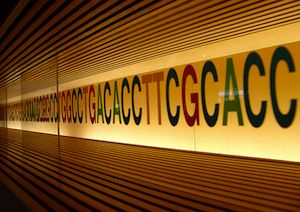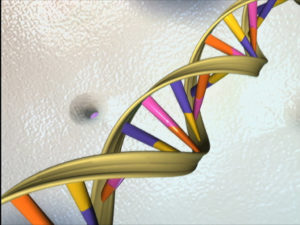Scientists Turn DNA Into a Virtually Limitless Storehouse
The successful translation of a book into genetic coding suggests that the building blocks of life could be used to store data cheaply, durably and with staggeringly little space compared with conventional digital devices.
The successful translation of a book into genetic coding suggests that the building blocks of life could be used to store data cheaply, durably and with staggeringly little space compared with conventional digital devices.
One gram of artificially synthesized deoxyribonucleic acid — or DNA — stored on a glass chip can hold up to 450 billion gigabytes of information — roughly more than the equivalent of 100 billion DVDs.
DNA’s storage efficiency comes from the fact that it exists in three dimensions. Traditional storage techniques, such as writing on compact discs or hard drives, are confined to two dimensions. Information stored as DNA is also easily copied and maintains its fidelity after thousands of years spent in “non-ideal” conditions, researchers say.
— Posted by Alexander Reed Kelly.
Your support matters…The Guardian:
The sequence of the artificial DNA was built up letter by letter using existing methods with the string of As, Cs, Ts and Gs coding for the letters of the book.
The team developed a system in which an inkjet printer embeds short fragments of that artificially synthesised DNA onto a glass chip. Each DNA fragment also contains a digital address code that denotes its location within the original file.
The fragments on the chip can later be “read” using standard techniques of the sort used to decipher the sequence of ancient DNA found in archeological material. A computer can then reassemble the original file in the right order using the address codes.
Independent journalism is under threat and overshadowed by heavily funded mainstream media.
You can help level the playing field. Become a member.
Your tax-deductible contribution keeps us digging beneath the headlines to give you thought-provoking, investigative reporting and analysis that unearths what's really happening- without compromise.
Give today to support our courageous, independent journalists.








You need to be a supporter to comment.
There are currently no responses to this article.
Be the first to respond.